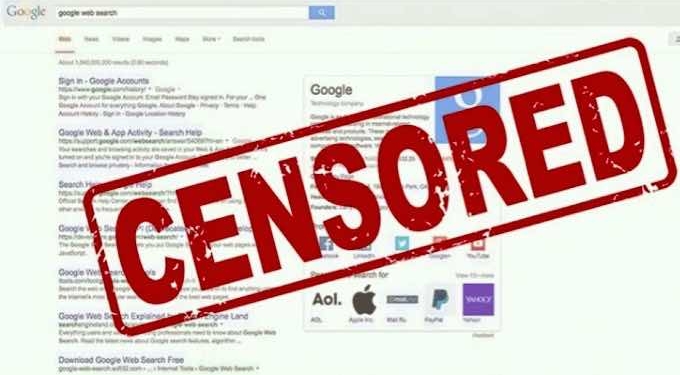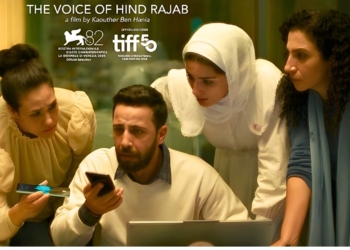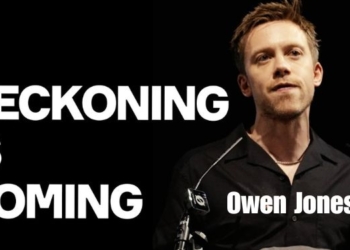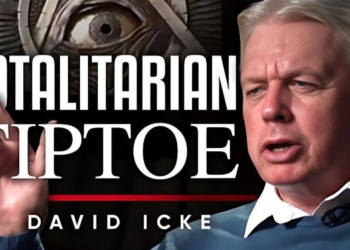
By Jake Johnson, staff writer | Common Dreams
As Google works to crush an internal staff revolt over its reported plan to launch a censored version of its search engine in China, a coalition of 14 of the world's most prominent human rights groups sent an open letter to Google CEO Sundar Pichai on Tuesday calling the tech giant's project “an alarming capitulation” on human rights and demanding that it cancel any effort to provide censored services.
“The Chinese government extensively violates the rights to freedom of expression and privacy; by accommodating the Chinese authorities' repression of dissent, Google would be actively participating in those violations for millions of internet users in China,” wrote the coalition, which includes Amnesty International, Electronic Frontier Foundation, and Reporters Without Borders.
While Google executives have not publicly acknowledged the censored search engine project—code-named “Dragonfly”—employees were reportedly outraged when Pichai revealed the highly secretive plans during a staff meeting earlier this month.
“Google should heed the concerns raised by human rights groups and its own employees and refrain from offering censored search services in China,” the coalition added.
Citing Google's 2010 decision to withdraw from China due to the country's free speech restrictions, the groups argued that the Chinese government has only “strengthened its controls over the internet and intensified its crackdown on freedom of expression” since then.
Because of China's continued repression of free speech, the human rights groups called on Google to:
- Reaffirm the company's 2010 commitment not to provide censored search engine services in China;
- Disclose its position on censorship in China and what steps, if any, Google is taking to safeguard against human rights violations linked to Project Dragonfly and its other Chinese mobile app offerings;
- Guarantee protections for whistleblowers and other employees speaking out where they see the company is failing its commitments to human rights.
“Google has a responsibility to respect human rights that exists independently of a state's ability or willingness to fulfill its own human rights obligations,” the groups conclude. “As it stands, Google risks becoming complicit in the Chinese government's repression of freedom of speech and other human rights in China.”
Google, it's time to come clean on your plans in #China. Will you comply with Chinese state censorship?
We’ve joined 13 global rights groups to call on @sundarpichai to put human rights before business. https://t.co/5PX3PkYOAC
— Amnesty International (@amnesty) August 28, 2018
According to The Intercept‘s Ryan Gallagher—who first reported on Google's plans earlier this month, citing leaked documents and company whistleblowers—the censored search engine would automatically blacklist any content that the Chinese government deems “sensitive,” such as information about peaceful protest, human rights, and democracy.
Google executives have kept Project Dragonfly under strict secrecy since the its inception last spring—revealing the details to just a few hundred employees—but the company faced an internal “uproar” after The Intercept‘s initial reporting “triggered a wave of disquiet that spread through the internet giant's offices across the world.”
“Company managers responded by swiftly trying to shut down employees' access to any documents that contained information about the China censorship project, according to Google insiders who witnessed the backlash,” The Intercept reported.
Without whistle-blowers, we would know nothing about Google's reported secret plans to re-enter China at expense of #humanrights.
Solidarity with brave employees speaking out ✊https://t.co/mOFoKYZxT1
— Joe Westby (@JoeWestby) August 28, 2018
In their letter on Monday, the human rights groups denounced Google's reported retaliation against employees over the leaked documents and called on the tech giant to “publicly commit to protect whistleblowers in the company and to take immediate steps to address the concerns employees have raised about Project Dragonfly.”
“The Chinese government runs one of the world's most repressive internet censorship and surveillance regimes,” Anna Bacciarelli, technology and human rights researcher at Amnesty International, said in a statement. “It is simply not acceptable for Google's senior executives to keep quiet when the company is reported to be considering actively participating in the violations of the rights to freedom of expression and privacy for millions of people in China.”
This work is licensed under a Creative Commons Attribution-Share Alike 3.0 License









![Who Is Bobby Kennedy? [30-Minute Film on RFK Jr.’s Life, Narrated by Woody Harrelson]](https://consciouslifenews.com/wp-content/uploads/2024/05/who-is-bobby-kennedy-350x250.jpg)






